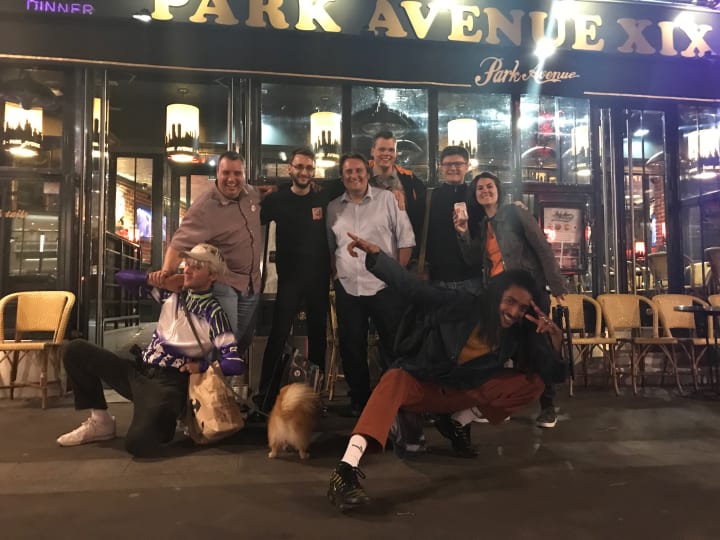Guest
on 25 September 2017
This is a guest post by Marius Quabeck.
I’ve been to many Ubuntu related events before, but what surprises me every time about UbuCons is the outstanding work by the community organising these events.
Earlier this month, I was in Paris for UbuCon Europe 2017. I had quite high expectations about the event/location and the talks, especially because the French Ubuntu community is known for hosting awesome events several times a year like Ubuntu Party and Ubuntu install parties.
I did not get disappointed. The location of the event, a whole floor in a science museum, was amazing. There were many booths presenting Ubuntu and Open Source related things like UBports, Mozilla, OpenFoodFacts, Slimbook and many others.
Besides the booths there were talks and keynotes over the course of the 3 days event. There were many great talks and workshops but for the sake of keeping this blog post short, I’ll only cover my personal highlights.
The first keynote held by Alan Pope was about Snapcraft which you can watch here. He explained how snaps work and how to get started if you want to distribute your applications for millions of users. Himself and Martin Wimpress also hosted several workshops about Snapcraft.
Also in tradition of UbuCons, there was a live podcast mashup show featuring Alan and Martin from the Ubuntu Podcast, Tiago Carrondo for the Ubuntu Portugal podcast, Rudy André from the Le Ubuntu Podcast and Maximilian Kristen and myself, Marius Quabeck, from the UbuntuFun Podcast. You can listen to the show here.
Another very interesting talk was held by Dustin Kirkland in which he talked about the results of the Ubuntu Desktop Survey and the roadmap for Ubuntu 18.04 LTS. This talk was also recorded and you can watch it here.
But my most favorite thing about events like this is meeting community people from all around the world.
There were so many great conversations over this 3 days and you’ll meet new people every time that you may have known online for years and you’ll finally get a face to the IRC name.

Seriously if you are interested in the Ubuntu community then you should go to an UbuCon!
A huge thanks to Olive and Rudy from the Ubuntu-fr loco team for organizing this event and for showing us around in Paris. I can’t wait for the next UbuCon wherever around the world it might be, I will come!
For more highlights in other languages:
Crónica de la 2ª Ubucon Europea by Marcos Costales (in Spanish)
Ubucon Europa 2017 – Paris by Tiago Carrondo (in Portuguese)



